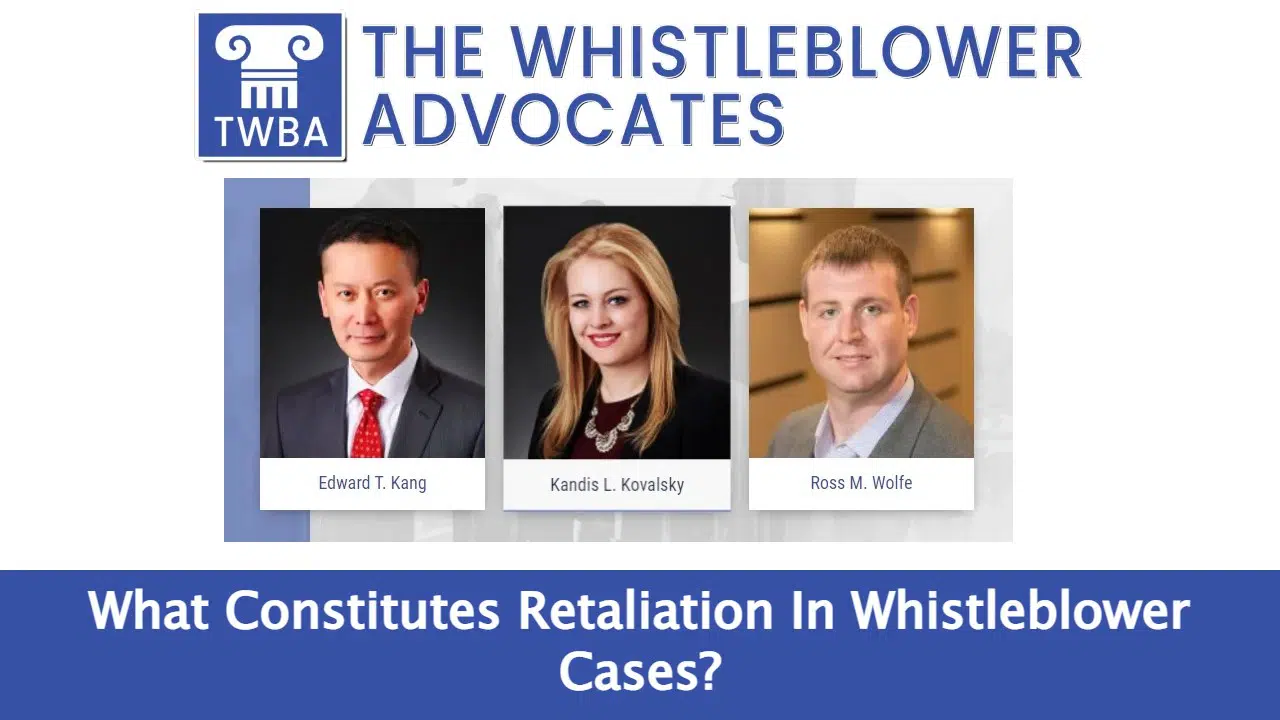Whistleblower laws such as the False Claims Act and those enforced by OSHA prohibit employers from retaliating against employees for reporting misconduct or violations of law internally within the company or to law enforcement.
Retaliation any adverse employment action taken by an employer against an employee who has engaged in an activity protected under the whistleblower law. This includes firing, demoting, suspending, threatening, harassing, or otherwise discriminating against an employee because they reported illegal conduct.
An adverse action is any disciplinary action taken against an employee because they have engaged in whistleblowing activity. It includes firing, demotion, suspension, reprimand, denial of promotion, or reduction in pay or compensation.
For instance, if an employee reports improper Medicare billing at his workplace, and he or she is fired for doing so. Or, if an employee is fired after reporting improper billing on a government contract. These are all examples in which an employer has retaliated against their employee.
In addition to protecting whistleblowers who report violations of federal law, the Whistleblower Protection Act (WPA) protects workers who report violations of state or local law. This includes writing illegal activity by coworkers, supervisors, managers, or co-workers. It also covers reporting fraud committed by companies or government agencies.
Although OSHA enforces no specific whistleblower protection laws, OSHA can help protect whistleblowers and prevent retaliation against them.
When an employee believes they are being subjected to unlawful employment practices, such as discrimination, harassment, or retaliation, they should file a complaint with OSHA.
Suppose you feel like you’ve been retaliated against at work because you reported a violation of the law. In that case, you may be able to file a complaint with the Department of Labor’s Occupational Safety and Health Administration (OSHA). OSHA has jurisdiction over all private sector workplaces, including restaurants, retail stores, construction sites, and many others.
If you feel like your employer has unfairly treated you, you may want to consider reporting it to OSHA. They will investigate the complaint, determine whether retaliation was involved, and order corrective action if so.
Suppose you believe that you were fired because you reported illegal activity at your workplace. In that case, it may be worth contacting a lawyer to see if you qualify for whistleblower protection.
Whistleblowers who expose wrongdoing at companies often face retaliation by their employers. This includes firing, demotion, suspension, denial of promotion, reduction in pay, and other actions. These types of activities violate federal anti-retaliation laws.
If you suspect illegal activity or have been discriminated against by your employer and are worried about whistleblower retaliation, contact The Whistleblower Advocates at (833) 310-3147 for a FREE, confidential consultation.

We serve clients throughout the Delaware Valley including, but not limited to, those in the following localities: Pennsylvania including Berks County, Bucks County, Chester County, Delaware County, Montgomery County, and Philadelphia.
Contact Us | The Whistleblower Advocates
Privacy Policy | Terms of Service
Please do not include any confidential or sensitive information in a contact form, text message, or voicemail. The contact form sends information by non-encrypted email, which is not secure. Submitting a contact form, sending a text message, making a phone call, or leaving a voicemail does not create an attorney-client relationship.
Copyright © The Whistleblower Advocates. All Rights Reserved